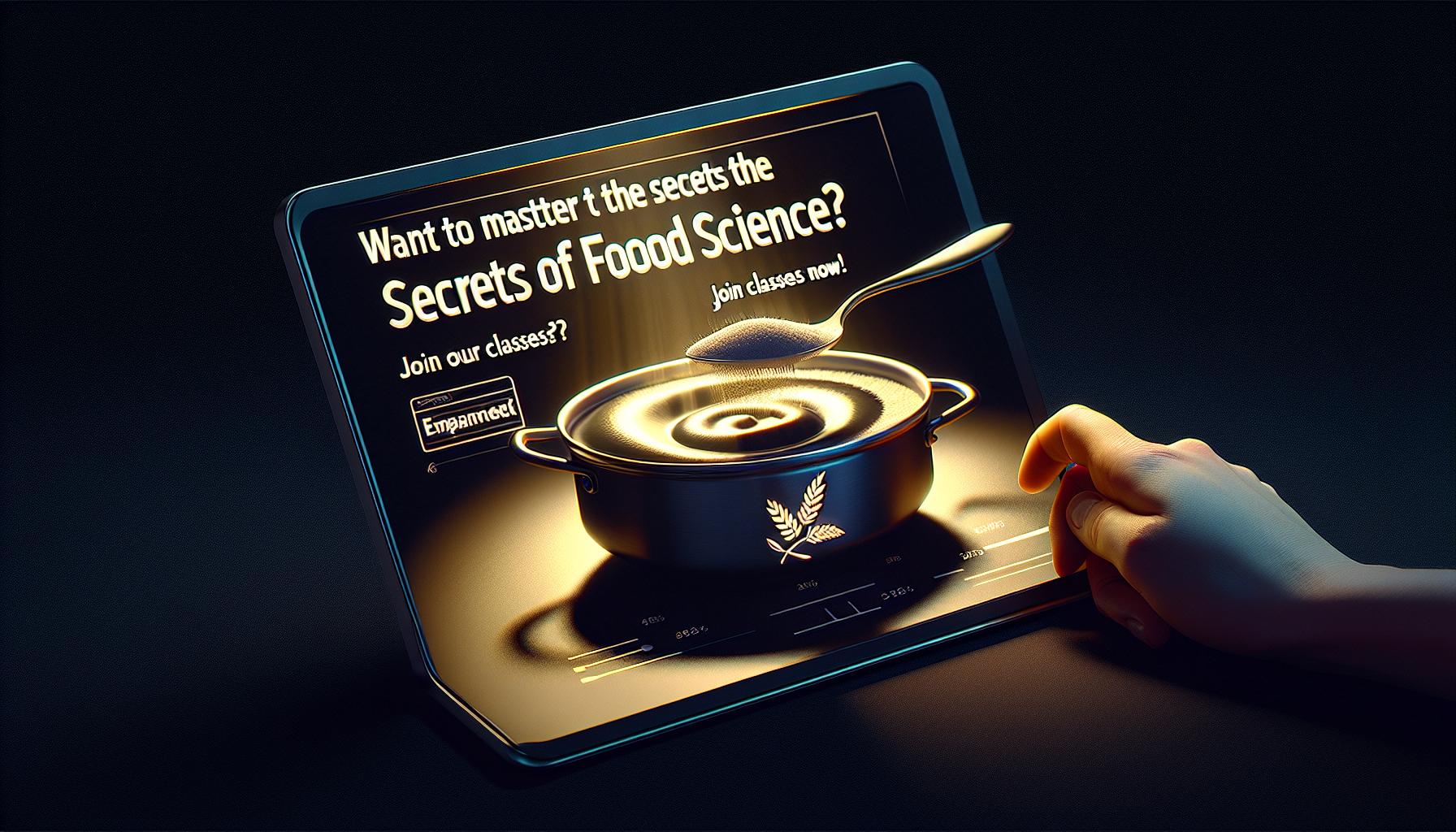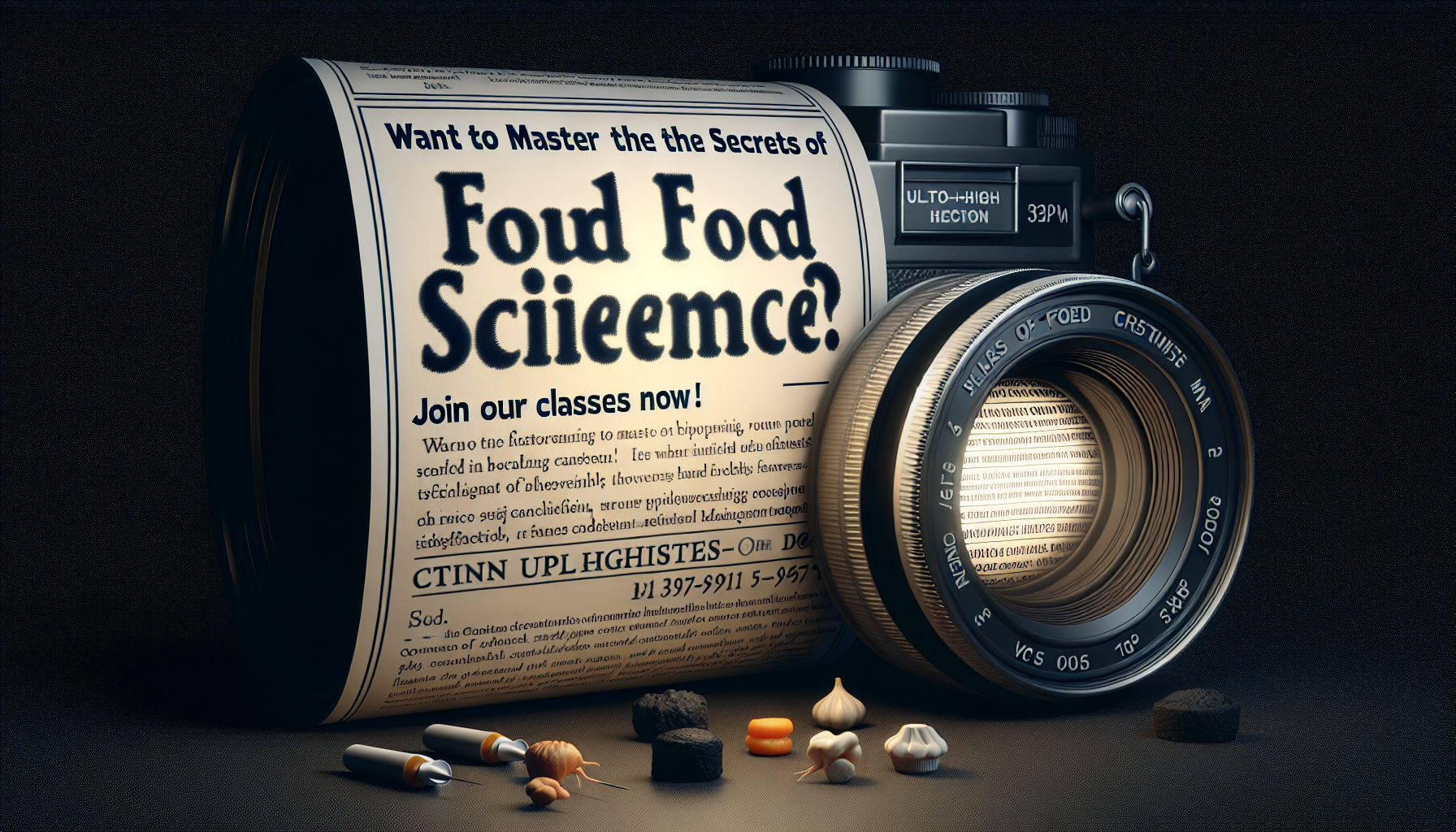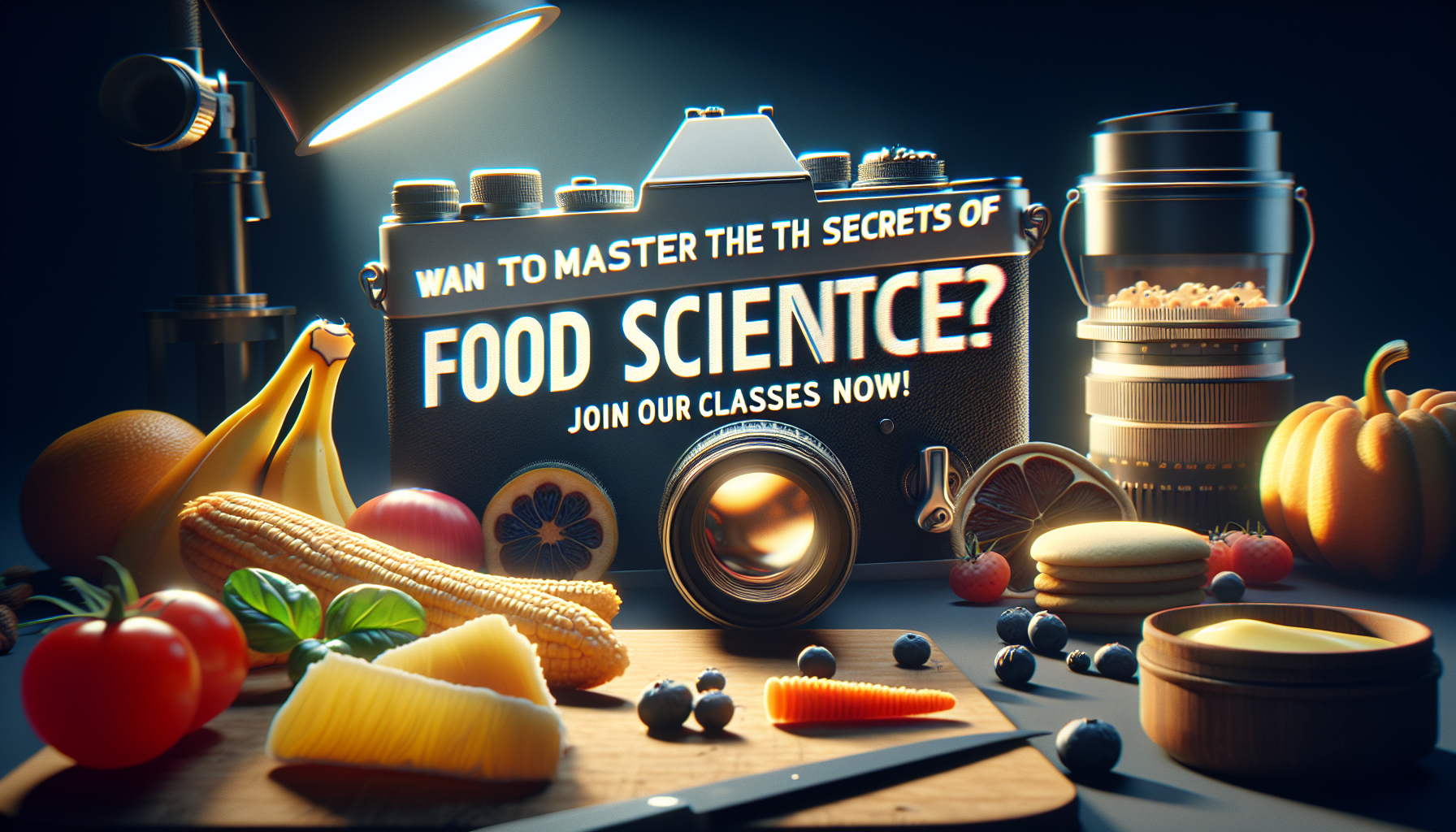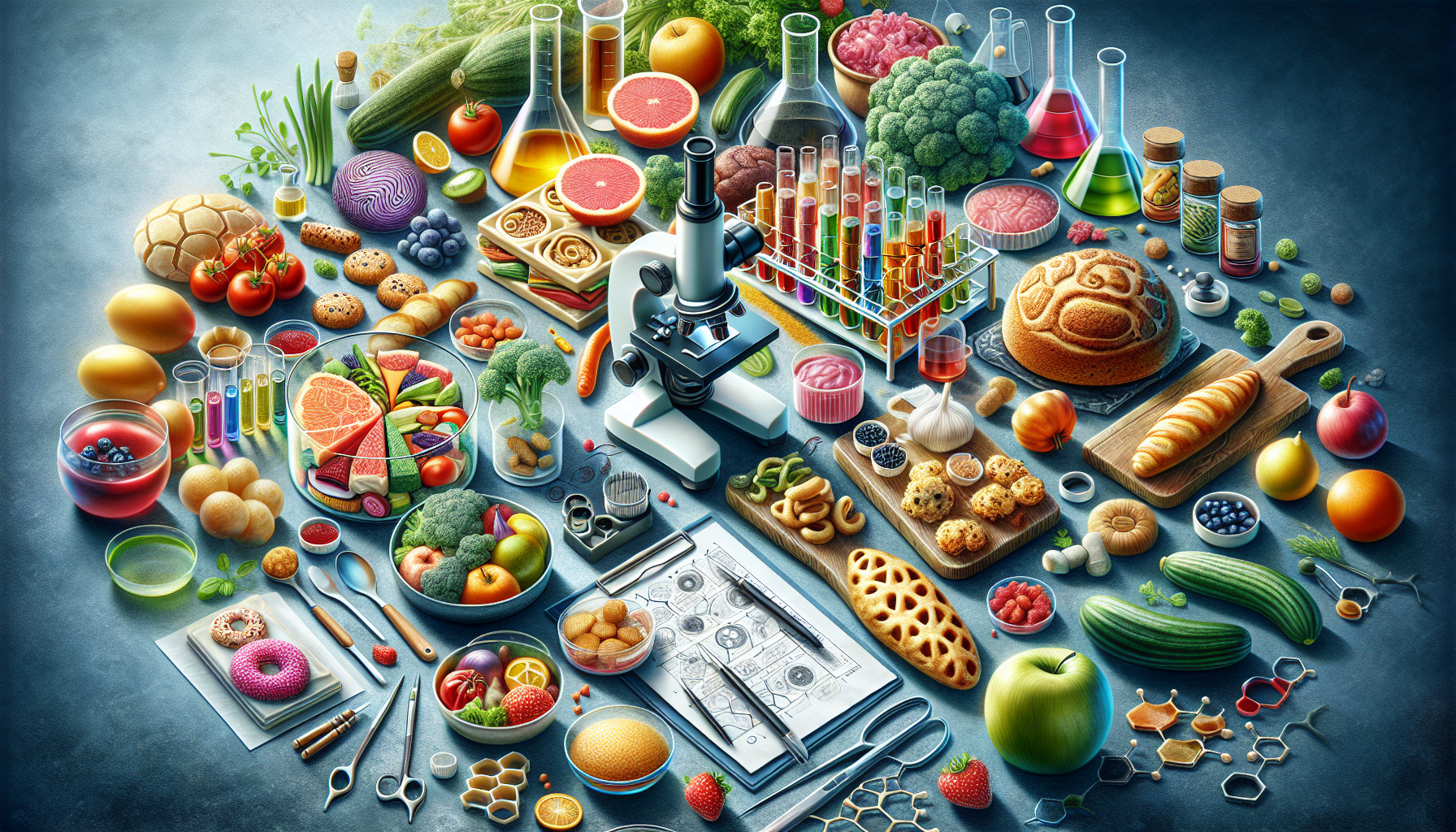Unlock the Fascinating World of Food Science
Unlock the Fascinating World of Food Science
Food is not just a basic necessity for survival; it is also an art form, a cultural treasure, and a subject of scientific exploration. The field of food science combines multiple disciplines such as chemistry, biology, nutrition, and engineering to understand the intricate composition and behavior of food. If you have ever wondered about the science behind the flavors, textures, and nutritional values of your favorite dishes, then it’s time to unlock the fascinating world of food science.
The Chemistry of Taste
Have you ever marveled at how certain ingredients come together to create a burst of flavors in your mouth? Food science unravels this mystery by delving into the chemistry of taste. Flavor is a complex interaction of chemical compounds in your taste buds. Different tastes, such as sweet, salty, sour, bitter, and umami, are detected through specific receptors. Food scientists study these receptors and the chemical reactions that occur when food interacts with them.
Moreover, food scientists also analyze the chemical structure and properties of individual compounds found in ingredients. This knowledge helps chefs and food manufacturers create innovative flavor combinations and unique sensory experiences. Understanding the chemistry of taste can elevate your culinary skills and enable you to create memorable dining experiences.
The Science of Food Preservation
Do you ever wonder how certain foods can stay fresh for months or even years? Food science plays a critical role in food preservation techniques. By understanding the microbial, enzymatic, and chemical processes that lead to food spoilage, scientists develop methods to extend the shelf life of perishable items.
From canning and freezing to dehydration and fermentation, food preservation techniques rely on scientific principles to maintain the quality and safety of food. Learning about these techniques can help you reduce food waste and make the most out of your ingredients.
Nutrition: The Key to Healthy Eating
Food science also provides valuable insights into the nutritional composition of food. By studying the chemical makeup and biological effects of different nutrients, scientists can determine the potential health benefits or risks associated with certain foods. This knowledge is essential for maintaining a healthy diet and preventing chronic diseases.
Whether you are interested in personal nutrition or pursuing a career in dietetics, understanding the science behind nutrition is crucial. Food science empowers you to make informed choices about your diet and take control of your health.
The Art of Food Innovation
Food science goes beyond scientific analysis; it also embraces creativity and innovation. By exploring new ingredients, developing unique recipes, and experimenting with novel cooking techniques, food scientists push the boundaries of culinary arts. This fusion of science and art has led to groundbreaking creations like molecular gastronomy and plant-based meat alternatives.
Embarking on a food science journey allows you to tap into your creativity and become a trailblazer in the culinary world. Whether you dream of opening a restaurant or revolutionizing the food industry, understanding the science behind food will give you the competitive edge.
So, are you ready to unlock the fascinating world of food science? Prepare to delve into the hidden dimensions of taste, preservation, nutrition, and innovation. Your culinary adventures will be forever transformed as you discover the scientific secrets behind every bite.
Explore the Intricacies of Food Chemistry

Explore the Intricacies of Food Chemistry
Food is not just something we consume for sustenance; it is a fascinating combination of chemistry and flavor. Behind every delicious dish lies a world of intricate chemical reactions that transform raw ingredients into delectable treats. In this article, we will delve into the world of food chemistry and explore the science behind the flavors we love.
The Maillard Reaction: Creating Flavor through Browning
One of the most important chemical reactions in cooking is the Maillard reaction. Named after the French chemist Louis-Camille Maillard, this reaction occurs when amino acids and reducing sugars react at high temperatures, resulting in the browning and delicious aromas we associate with cooked food.
During the Maillard reaction, a cascade of chemical reactions takes place, producing hundreds of different compounds that contribute to flavor and aroma. From the nutty notes in toasted bread to the caramelization of meat on a hot grill, the Maillard reaction plays a crucial role in creating the rich flavors we enjoy.
The Role of Acids in Food
Acids are essential components of many iconic culinary creations. From adding a tangy twist to salad dressings to tenderizing tough cuts of meat, acids are versatile players in the kitchen. But what exactly do they do?
Acids serve several functions in food chemistry. Firstly, they can reduce the pH level, creating an environment that inhibits the growth of bacteria. Secondly, acids enhance the flavors of certain ingredients, such as fruits and vegetables. Lastly, acids can break down proteins and connective tissues, making meats more tender and easy to chew.
Emulsions: The Science behind Creamy Sauces
Have you ever wondered how a simple mixture of oil and water can become a silky-smooth mayonnaise or a velvety béarnaise sauce? The answer lies in the science of emulsions.
Emulsions are mixtures of immiscible liquids, such as oil and water, held together by a stabilizing agent. In the case of mayonnaise, egg yolk acts as the stabilizer, forming a stable emulsion that gives the sauce its creamy texture. Understanding the principles of emulsions can help you create perfect salad dressings, sauces, and even ice creams.
The Power of Enzymes in Food
Enzymes are nature’s catalysts, speeding up chemical reactions in living organisms. In the context of food chemistry, enzymes play a vital role in the transformation of raw ingredients into more flavorful and nutritious creations.
For example, the enzyme amylase is responsible for breaking down starches into simple sugars, resulting in a sweeter taste during baking. Proteases, another group of enzymes, break down proteins, leading to the tenderization of meat. By harnessing the power of enzymes, chefs can unlock new flavors and textures in their dishes.
Your Journey into Food Chemistry
Understanding the intricacies of food chemistry adds a new dimension to the culinary world. By grasping the science behind cooking techniques and chemical reactions, you can unleash your creativity and create dishes that tantalize the taste buds.
As you embark on your journey into food chemistry, remember to experiment and push the boundaries. Curiosity is the key to unlocking new flavors and discovering the wonderful world of culinary artistry. So, dive in, explore the intricacies of food chemistry, and let your taste buds be your guide.
Gain Practical Skills in Food Processing and Preservation

Gain Practical Skills in Food Processing and Preservation
Are you passionate about food and interested in learning practical skills in food processing and preservation? This article will guide you through some key techniques and methods that will help you develop your skills in this exciting field. Whether you want to start your own food business or simply enhance your culinary abilities, gaining knowledge in food processing and preservation is essential.
The Importance of Food Processing and Preservation
Food processing and preservation play a crucial role in the food industry. By utilizing various techniques, such as canning, freezing, drying, and fermenting, the shelf life of food products can be extended while maintaining their quality and nutritional value. This not only reduces food waste but also provides convenience for consumers.
Developing Your Skills
Here are some practical skills you can develop in food processing and preservation:
- Canning: Learn how to properly preserve fruits, vegetables, and other foods in jars or cans. This technique involves heat processing to kill bacteria and other microorganisms, ensuring the safety and longevity of the preserved food.
- Freezing: Master the art of freezing foods to preserve their freshness. Different foods require different freezing techniques, so it’s important to understand the best practices for freezing various types of produce, meats, and dairy products.
- Drying: Understand the process of drying foods to remove moisture and extend their shelf life. Learn about different drying methods, such as air drying, sun drying, and dehydrator drying, and how they affect the texture, flavor, and nutritional value of the food.
- Fermenting: Explore the world of fermentation, a traditional preservation method that not only extends the shelf life of foods but also enhances their flavor and nutritional value. Learn about fermenting techniques for making sauerkraut, pickles, yogurt, and more.
- Food Safety: Gain knowledge about proper hygiene practices, food handling, and storage techniques to ensure the safety and quality of preserved foods. Understanding food safety regulations and guidelines is crucial for any food processing and preservation endeavor.
Resources for Learning
There are various resources available to help you gain practical skills in food processing and preservation:
| 1. Culinary Schools | Consider enrolling in a culinary school or program that offers courses in food processing and preservation. These institutions often provide hands-on training and access to industry professionals. |
| 2. Online Courses | Explore online platforms and websites that offer courses and tutorials on food processing and preservation. These resources can be accessed from the comfort of your own home and allow you to learn at your own pace. |
| 3. Books and Publications | Expand your knowledge by reading books, magazines, and publications related to food processing and preservation. Look for titles written by experts in the field and that provide practical tips and techniques. |
| 4. Workshops and Seminars | Participate in workshops and seminars conducted by professionals in the food industry. These events offer valuable practical experience and networking opportunities. |
Gaining practical skills in food processing and preservation opens up a world of possibilities. Whether you want to embark on a culinary career or simply enjoy the benefits of preserving your own food at home, mastering these techniques will enhance your knowledge and creativity in the kitchen. Remember to always prioritize food safety and quality, and never stop learning and experimenting with different preservation methods. Happy processing!
Join Our Classes and Become a Food Science Expert

Discover the Exciting World of Food Science
Are you passionate about food? Do you want to turn your love for cooking into a career? Look no further! Our food science classes are designed to help you become a food science expert and make your mark in the culinary industry.
Unleash Your Creativity in the Kitchen
Our classes will provide you with the knowledge and skills needed to excel in the field of food science. You will learn about the chemical and physical properties of food, as well as the various techniques and processes used in food production.
Master the Art of Flavor Development
If you’ve ever wondered how chefs create perfectly balanced and delicious flavors, our classes will unveil the secrets behind flavor development. You will learn how to combine ingredients, experiment with different cooking techniques, and create your own unique flavor profiles.
Explore Food Safety and Quality Control
Food safety is of utmost importance in the culinary world. Our classes will teach you about the latest food safety regulations and best practices. You will also learn about quality control measures to ensure that the food you prepare meets the highest standards.
Gain Hands-on Experience
Learning by doing is one of the most effective ways to master any skill. That’s why our food science classes include hands-on practical exercises. You will have the opportunity to work in state-of-the-art kitchens and labs, putting your knowledge into practice.
Expand Your Career Opportunities
By enrolling in our food science classes, you will open the doors to a wide range of exciting career opportunities. You can become a product development scientist, a flavorist, a quality control manager, or even a chef with a scientific edge.
Join Our Community of Food Science Enthusiasts
When you join our classes, you become part of a vibrant community of food science enthusiasts. You will have the chance to connect with like-minded individuals, attend industry events, and collaborate on exciting projects.
Take the First Step
If you’re ready to embark on a culinary journey like no other, join our food science classes and become a food science expert. Enroll today and start building the foundations for a successful career in the world of food science.
